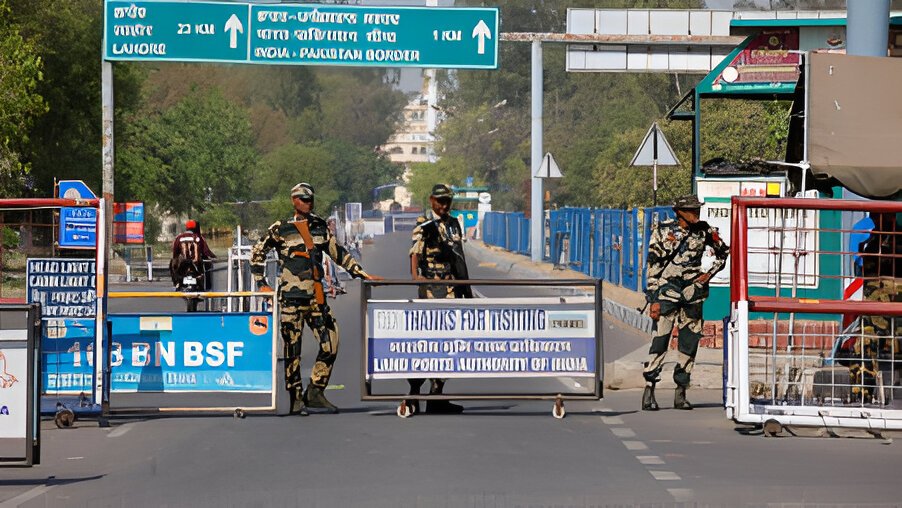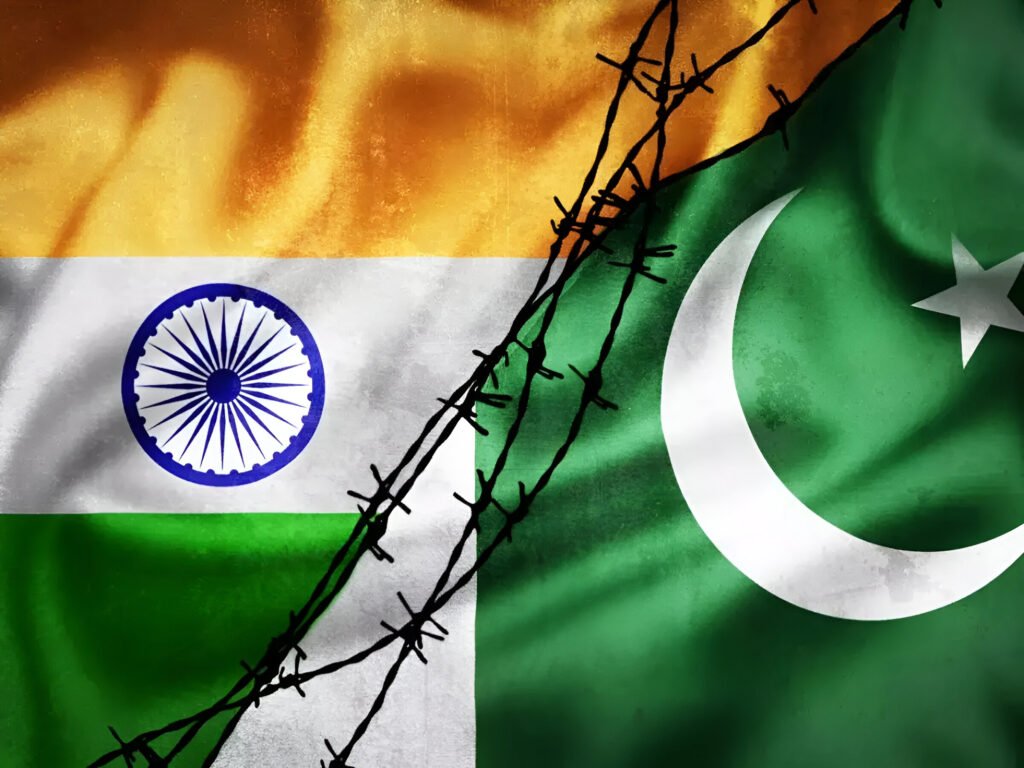
In the wake of the fatal terror strike in Pahalgam that killed 26 people, India has adopted a series of tough steps with the objective to isolate Pakistan economically as well as diplomatically. The government has announced an immediate ban on the import and transit of all goods originating from or exported by Pakistan. The move also includes a complete prohibition on Pakistani vessels entering Indian ports—marking one of the most stringent trade crackdowns between the two neighbors in recent years.
These actions come just after India had declared the sealing of the Attari-Wagah border—the only land trade connection between the two countries. Trade through this corridor, though reduced over time, still constituted significant exchanges, especially for small traders. The action to close the border is set to paralyze what little remained of bilateral trade and further worsen the economic crisis already surrounding Pakistan.
All Forms of Trade Cut Off
According to an official notification issued by the Ministry of Commerce, a new clause has been added to India’s Foreign Trade Policy (FTP). It explicitly states that “the direct or indirect import or transit of all goods originating in or exported from Pakistan is prohibited with immediate effect until further notice.” The notification clarifies that this move has been taken in the interest of national security and public policy, signaling India’s zero-tolerance approach toward terrorism and cross-border hostilities.
In addition to this, the Directorate General of Shipping has also put out an autonomous directive banning all Pakistani-flagged vessels from entering Indian ports. The directive goes on to assert that this must be done to safeguard Indian maritime assets, goods, and surrounding infrastructure from potential harm. These restrictions now apply beyond mere land trade and affect maritime logistics, shipping firms, and port activities that might have handled Pakistani consignments earlier.
A Setback to Pakistan’s Weak Economy
While the value of direct Pakistan imports had indeed declined in the past few years—reaching a modest USD 3 million in 2023–24—the new policy also aims to check indirect trade. A majority of Pakistani products had previously found their way into India through third nations like the UAE, Sri Lanka, and Singapore, thus avoiding direct bans on trade. With the new clause extending to indirect imports too, that channel has effectively been shut.
This action will be likely to inflict a stern blow on Pakistan’s ailing economy, more so on small and medium-scale enterprises that used Indian markets. India’s restriction is coming at a time when Pakistan is fighting high inflation, a depreciating currency, and an increasing debt burden. Small-scale producers, farm exporters, and traders are likely to experience the pinch early, as India was one of their most readily accessible markets both geographically and logistically.

Background: Declining Trade Relations Since 2019
This is not the first time that bilateral trade relations between the two countries have suffered as a result of incidents of terror. After the Pulwama attack in 2019, in which more than 40 Indian security officials were martyred, India had cancelled Pakistan’s Most Favoured Nation (MFN) status. This resulted in a sharp drop in bilateral trade, with direct trade falling drastically in subsequent years.
According to official trade data, bilateral trade through the Attari-Wagah border was still worth around ₹3,886 crore in 2023–24. The bulk of these exchanges included agricultural goods, textiles, and limited pharmaceutical items. The decision to halt trade through this channel altogether signifies a critical juncture in India-Pakistan economic ties, possibly pushing them into an indefinite freeze.
Pharmaceutical Addiction Worsens in Pakistan
Though India is not largely reliant on Pakistan for imports, the latter is not the case. Pharmaceuticals have been one of the main sectors where India has relied on Pakistan. Since India has now put all types of trade on hold, Pakistan is said to be scrambling to secure alternative suppliers of critical medical products and APIs. This actually helps to create health issues in Pakistan, particularly in regard to access to life-saving drugs as well as generic drugs.
Pakistan’s business commentators and health specialists have warned that the sudden reduction in the importation of medicine would lead to temporary shortages and inflation. The country is now looking at options in China, Turkey, and Bangladesh to bridge the gap, although those alternatives may not be as cost-effective or timely.
A Strategic and Symbolic Message
India’s move sends a strong diplomatic and strategic message—not just to Pakistan, but to the international community. By combining trade sanctions with port bans, India is sending a signal of a full-scale approach to protecting its national interests. The measures highlight India’s position that acts of terrorism will bring actual economic repercussions and not merely diplomatic censure.
With Pakistan retaliating by suspending trade with India as well, the two nuclear-armed neighbors are once again facing increased tensions, both political and economic. Whether these actions will lead to a long-term policy change remains to be seen. But in the short term, the price of terrorism is now being tallied not only in lives but also in economic losses and broken relations.







